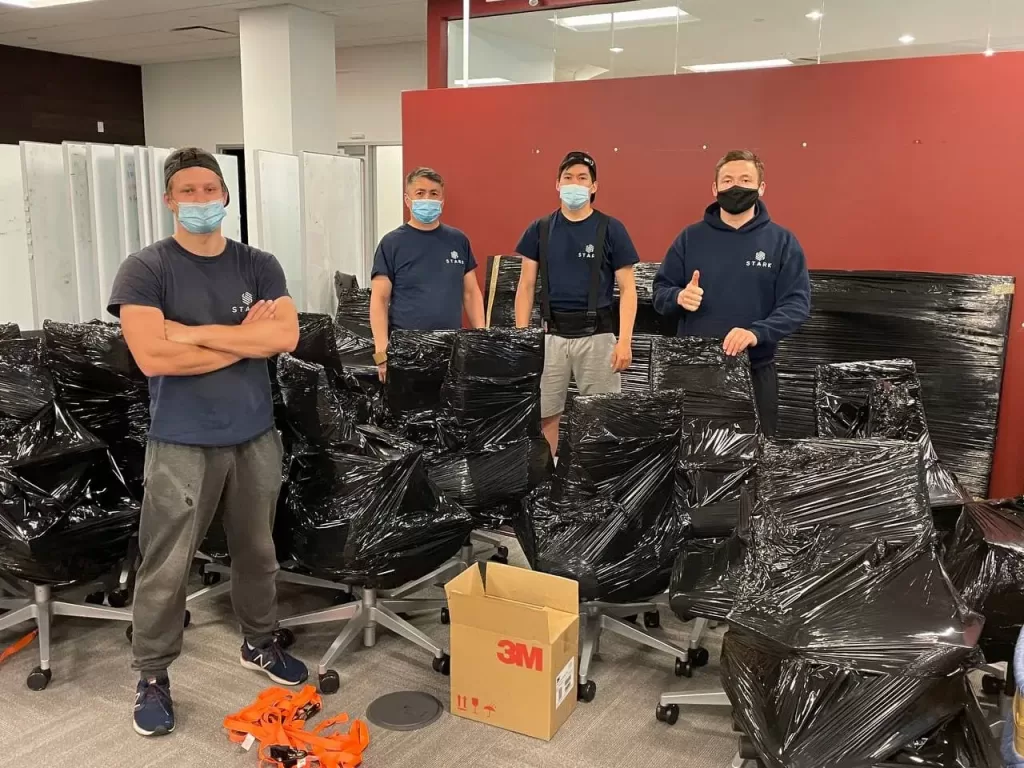If your client is relocating soon, they are likely looking for professional movers. When the market is brimming with options, simply relying on online customer reviews isn’t enough to get a real feel for a company’s quality. After all, every firm lists similar services and promises a safe and stress-free move.
Instead of getting stuck having to trust your belongings with a mediocre moving company, it’s best to take extra steps to assess how good they are and what you can expect when hiring them. Once your client researches the background and track record of the company online, we recommend that they interview the team. Below, you will find a list of questions that a potential company should be asked.
1. Will I have to pay any additional fees?
There are a variety of small services that fall under the umbrella of additional fees. Here are a few to look out for:
- Packing supplies: Full-service moving companies typically offer packing services. You will have to pay for packing labor and may or may not have to pay for the packing materials as well.
- Furniture disassembly & reassembly: Some companies will charge extra for dismantling beds, big dressers, sofas, and other items that won’t fit through the door.
- Hoisting services: Some bulky and oversized items like grand pianos, bathtubs, pool tables may have to be hand-hoisted through the flights of stairs. Expect to be charged extra for these items.
- Long carry fees: If you cannot reserve a parking spot within a certain distance from your apartment, you will be charged an additional fee for the distance between the truck and your door. In bigger cities like New York and Boston, it can be impossible to find parking on the spot. This is why you should talk to your landlord and reserve a space for the movers ahead of time.
2. How do you calculate the cost of my shipment?
Relocation costs largely depend on the moving size and distance. Here’s a quick breakdown of what goes into your estimate:
- Travel distance: The farther your destination, the more expensive the move.
- Load size: Bigger shipment costs more. We recommend decluttering your belongings to avoid paying for the shipment of items you will not use.
- Job scope: Services like packing, hoisting, piano moving, and storage services will add to the estimate.
- Moving date: Moving during peak season (summer months) or during the weekends will be more expensive.
3. Do you offer any liability coverage?
When you move either locally or to another state, having liability coverage ensures that you will be reimbursed if your items are misplaced or damaged during transit. Most companies offer two types of liability coverages:
- Basic Liability: Every moving company is required to provide basic liability coverage for free. This type of coverage offers $0.30 per pound for local moves and $0.60 per pound for interstate moves. If your 100-pound item is damaged during transit, you will be reimbursed $30 if moving locally or $60 if moving to another state.
- Complete Valuation Protection: This type of coverage offers full replacement value of either lost or damaged items in your entire shipment. Full coverage is useful if you travel with expensive jewelry, fine art, piano, or antique items.
4. Are there items that I’m not allowed to bring?
We recommend not taking perishable items like food and plants in the moving truck. Avoid hazardous materials, like household cleaners like bleach, lighter fluid, fertilizer and weed killer, ammunition, car batteries, flammable, corrosive, or explosive items as well.
Do not place medicine, car keys, and sensitive documents like address books, plane tickets, school records deeds, tax records, jewelry, moving documents, and other valuables in the moving truck.
5. What can you tell me about your staff?
How a moving company treats its staff is a big sign of how you’ll be treated. Good companies offer extensive worker compensation benefits to their movers. That way, if a worker gets hurt on the job, you won’t be getting sued.
You also want to work with a company that only hires thoroughly background-checked employees. Since you will be letting them into your house, you want to make sure they are trustworthy.
6. How do you handle the packing of fragile or high-value items?
Most companies will take extra precautions when packing and handling fragile items. Ask the company what they consider breakable and how they pack items like artwork, mirrors, crystalware, antique furniture, etc. You want to ensure that the company doesn’t shy away from dismantling fragile items if it’s needed to preserve its integrity during the move.
7. What payment methods do you accept?
Moving companies will accept payment in check, cash, money order, and all major credit cards. You will typically only be required to pay once your item is delivered.
Be wary of companies that ask you to pay upfront. This is a terrible practice and opens you up for scams.
8. How can I track the status of my shipment once it leaves my home?
Bigger moving companies may provide GPS tracking capabilities that let you monitor the status of your items via the website or an app. If it’s a smaller company that lacks this feature, you should be able to call and reach them to get a status update.
You also have an option to add a tracker in one of your boxes that shows you where your belongings are at any given point.
If your client needs local or long-distance moving assistance anywhere in Boston or the US, have them give us a call. We have provided hundreds of businesses and families packing, loading, and transportation assistance. Our team would love to help your client during this stressful time of transition.

